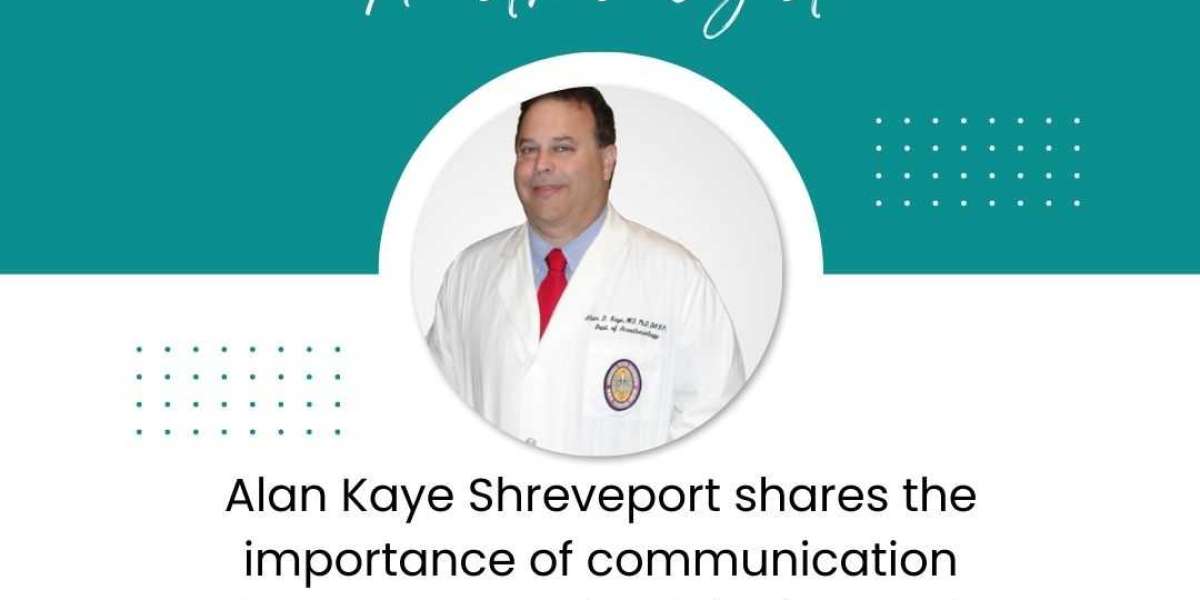Communication is a fundamental aspect of any successful team, and the medical profession is no exception. According to Alan Kaye Shreveport, effective communication between anesthesiologists and surgeons is crucial for ensuring the patient's safety and well-being throughout the surgical procedure. In this blog, we will discuss the importance of communication between anesthesiologists and surgeons during surgery, including the benefits it provides and the risks associated with poor communication.
Patient Safety:
According to Alan Kaye Shreveport,The most critical reason for effective communication between anesthesiologists and surgeons is to ensure the safety of the patient. During surgery, both professionals need to be aware of the patient's condition and vital signs. Communication between the two helps to ensure that the patient's condition is closely monitored and that any changes are promptly identified and addressed.
Coordination of Anesthesia and Surgery:
Another important reason why communication between anesthesiologists and surgeons is crucial is the coordination of anesthesia and surgery. The anesthesiologist administers the anesthesia to the patient, while the surgeon performs the surgery. Effective communication between the two ensures that the anesthesia is administered at the right time and in the right amount to keep the patient comfortable and safe throughout the procedure.
Immediate Response to Complications:
During surgery, complications can occur, and quick identification and response to them are crucial to ensuring safety. Effective communication between anesthesiologists and surgeons allows for prompt identification of any complications that may arise during the procedure. In this way, any issues can be addressed immediately, minimizing the risk of any further complications or negative outcomes.
Improved Efficiency:
Effective communication between anesthesiologists and surgeons can lead to more efficient use of time during the surgery. By working together, they can ensure that the surgery is completed within the allotted time frame, which can help to minimize the risk of complications and improve patient outcomes. Inefficient communication or misunderstandings between the two professionals can lead to delays, prolonging the surgery, which may increase the risk of complications and negatively affect patient outcomes.
Minimizing Risks:
Poor communication between anesthesiologists and surgeons can result in risks to the patient. In some cases, a lack of communication between the two professionals can lead to the wrong anesthesia being administered, or complications not being identified, leading to potentially severe outcomes for the patient. Clear communication and effective teamwork between anesthesiologists and surgeons can help to minimize these risks, ensuring that the surgery is completed safely and effectively.
Communication Techniques:
There are various communication techniques that anesthesiologists and surgeons can use to ensure effective communication during surgery. These techniques include:
- The use of clear and concise language
- Active listening
- Questioning and clarification
- The use of technology to facilitate communication
- Team training and development of communication skills
Conclusion:
Effective communication between the two specialists is essential for the coordination of anesthesia and surgery, for spotting complications and responding to them, for increasing productivity, and for reducing risks. Clear communication techniques, such as the use of clear and concise language, active listening, questioning and clarification, the use of technology to facilitate communication, and team training, are all vital for ensuring effective communication during surgery. By working closely together and communicating effectively, anesthesiologists and surgeons can provide the best possible care for their patients.








